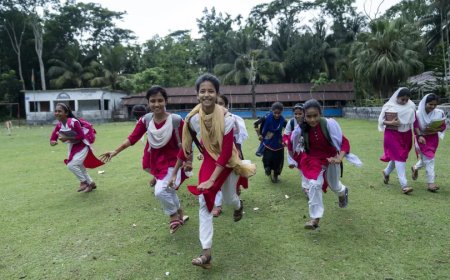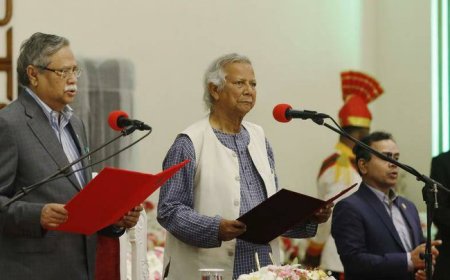Targeted for Their Faith: The Enduring Persecution of Ahmadi Muslims in Pakistan
Targeted for Their Faith: The Enduring Persecution of Ahmadi Muslims in Pakistan

On April 18 this year, a 47-year-old car workshop owner was brutally murdered with sticks and bricks when a mob of hundreds attacked his place of worship in Karachi, Pakistan. Several others had to be rescued by police. Despite the shocking nature of the violence, the incident failed to spark widespread condemnation from civil society or prompt decisive action from the state.
The muted response is explained by the fact that both the victim and the worship site belonged to the Ahmadi Muslim community — a minority group that faces frequent violent attacks, entrenched political and bureaucratic discrimination, and systemic oppression in Pakistan.
Annual reports from government agencies, international human rights groups, and community organizations consistently document the persecution of Ahmadi Muslims by Islamist groups and radicalized mobs, often without intervention — and at times, with the direct complicity — of the state. In one notable example from March this year, authorities demolished a 120-year-old Ahmadi worship site under pressure from Islamist factions who objected to its resemblance to a mosque.
The social hostility toward Ahmadis is pervasive: their graves are regularly desecrated, community members face harassment, targeted killings, mob assaults, commercial boycotts, workplace discrimination, online abuse, and frequent accusations of blasphemy for actions as basic as reading the Quran, using Islamic phrases on wedding cards, or praying in ways deemed “Islamic” by extremists.
Hostility towards the Ahmadiyya community dates back to its founding by Mirza Ghulam Ahmad in the late 19th century in Qadian, Punjab. However, a significant escalation occurred in 1974 when Pakistan amended its Constitution to declare Ahmadis as non-Muslims. Despite sharing most Islamic beliefs and practices, Ahmadis' acceptance of Mirza Ahmad as the Mahdi and Messiah put them at odds with the mainstream Islamic concept of Khatam-e-Nubuwwat, or the finality of Prophet Muhammad.
Further marginalization came in 1984 under General Zia-ul-Haq, who introduced laws criminalizing Ahmadi religious practices and barred Ahmadis from using Islamic symbols like domes and minarets. In 1985, separate voter lists were introduced, effectively forcing Ahmadis to renounce their faith to participate in elections. Although Pakistan shifted back to a unified voter list system in 2002, Ahmadis were deliberately excluded.
Today, discriminatory practices persist across various aspects of governance. Ahmadis must reject their faith to access basic state services like passport issuance. In October 2022, Punjab’s government mandated a declaration affirming the finality of Prophet Muhammad as a requirement for marriage registration.
The rise of extremist groups like Tehreek-e-Labbaik Pakistan (TLP) — whose supporters were implicated in the recent Karachi killing — has intensified the threats facing Ahmadis. The TLP gained prominence in 2017 after blockading Islamabad over a minor electoral oath amendment, forcing the government to capitulate and further entrench anti-Ahmadi sentiment. In 2018, even the prestigious economist Atif Mian was ousted from his advisory role under pressure from religious hardliners due to his Ahmadi faith.
Though the systemic exclusion of Ahmadis was state-engineered, societal hatred has grown beyond the state’s control, fueling radicalism, intolerance, and instability. Between 1984 and 2018, at least 264 Ahmadis were killed in targeted attacks, according to community data. Even Pakistan’s first Nobel Laureate, Abdus Salam, suffered posthumous humiliation when the word ‘Muslim’ was erased from his gravestone due to his Ahmadi identity.
What's Your Reaction?




















































































